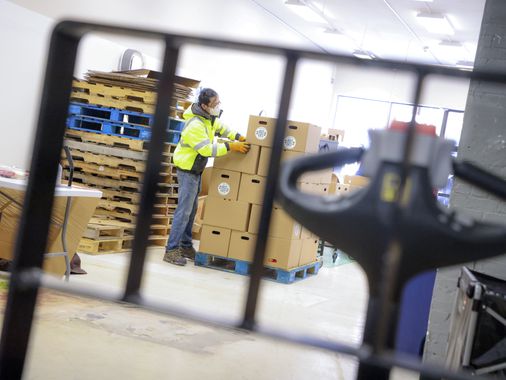
At the onset of the COVID-19 pandemic, the Cambridge Community Foundation received emails from people desperate for help to pay for food, rent and other household bills. “We would get, literally, sometimes two-word emails, ‘no food,’ [or] ‘cannot pay rent,’” recalled Geeta Pradhan, the foundation’s president.
The experience led the nonprofit to develop a five year action plan to address some of Cambridge’s most pressing social needs. A big step came this month when the foundation awarded just over $1.1 million in grant funding to seven organizations to address food insecurity.
The grants range from $10,000 for one year to $150,000 paid over three years, the foundation said in a statement. Margaret Fuller Neighborhood House, a recipient of a $150,000 grant, also received a second grant for $156,000 using federal funds, the statement said.
In addition, the foundation has pledged a $20,000 match to the federal Supplemental Nutritional Assistance Program (SNAP), to help low-income people to shop at farmer’s markets.
The grants have been made through the foundation’s Food Access and Security Initiative, a key part of the five-year plan, that aims to strengthen the city’s emergency food system.
As of 2021, research showed that 1 in 8 Cambridge residents experienced food insecurity, according to the foundation.
For pantries, meals programs and other groups providing emergency food assistance, the demand has not subsided even as the pandemic has waned, Pradhan said.
“The capacity of our pantries to store and distribute food is really strained,” she said.
Families have been forced to make difficult decisions, Pradhan said.
“We know that there are families that are making the choices to eat or heat [or] to buy detergent versus [buying] food,” she said. “We know that there are people who are going to food pantries five times a week, and not just for emergency purposes.”
The Cambridge Economic Opportunity Committee received two $150,000 grants. One will be used to support emergency food pantries operated in Central Square and another near a public housing complex on Rindge Avenue.
“We’re serving, now, between 150 and 170 families each pantry session that’s open,” said Tina Alu, executive director of the committee.
The committee also operates the Cambridge Food Pantry Network, which has seven locations around the city. Money from the second grant will be used to examine how the pantries operate, Alu said.
As part of that research, patrons of the food pantries will also be asked for their opinions about services, she said.
They’d like to have patrons “really have them be partners in the work, versus recipients of just a bag of food,” Alu said.
Food For Free will use its $150,000 grant to support Just Eats, a program which delivers a weekly box of groceries to residents at six low income housing sites, said Stephanie Tyler Smith, vice president of programs.
“It kind of functions as a very healthy pantry visit of produce and basics to make a lot of meals for a variety of different cultures,” Smith said. “And it’s just delivered to them rather than making them go out to a pantry and get those same things.”
With the grant money, the program will fund “just shy of 17,000 boxes annually,” to about 400 residents of the housing sites, she said.
The boxes, filled with fresh fruits, vegetables, protein and other staples “are really best used for families,” Smith said.
Adam Sennott can be reached at [email protected].
